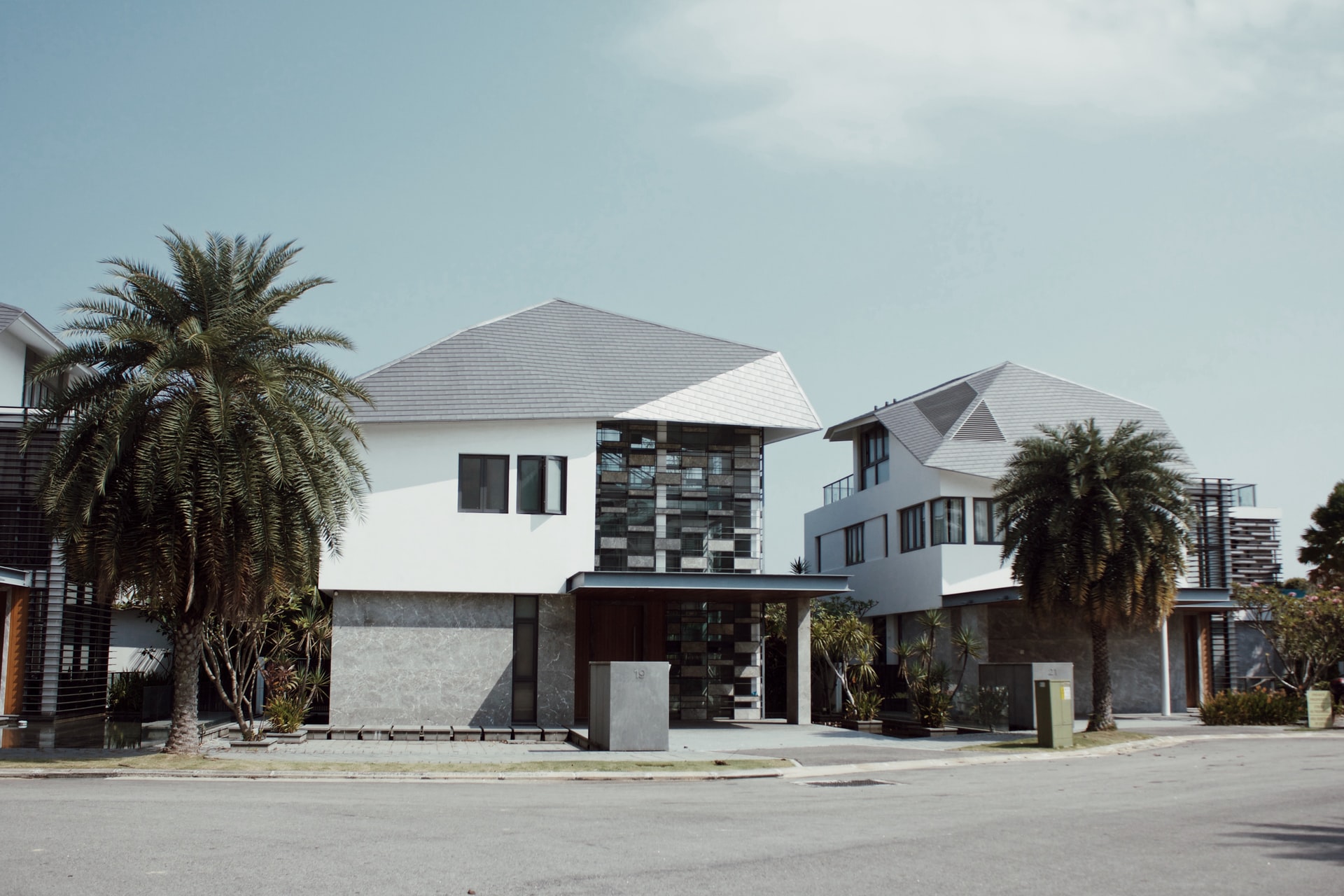Are you ready to begin your home-buying process but have no idea how you’ll finance your purchase? If you’re a W-2 employee, you can easily qualify for a traditional mortgage.
What happens if you’re a gig worker, independent contractor, or small business owner? Most lenders consider these kinds of jobs as self-employment. As a self-employed borrower, it’s hard to get a conventional mortgage, otherwise referred to as a qualified mortgage.
However, you can get a non-qualified mortgage, a funding solution for self-employed individuals who want to pursue their dream of homeownership. Here’s how non-QM loans work, how they differ from QM loans, the pros and cons, and how to get one.
What Is a Non-QM Mortgage and How Does It Work?
A non-QM or non-qualified mortgage is a mortgage loan that doesn’t meet the lending requirements set by the Dodd-Frank Act. These regulations were passed in 2010 to ensure that borrowers can repay their loans and prevent a repeat of the subprime mortgage crisis seen in the 2008 housing market crash.
Not everyone satisfies the federal requirements for a conventional mortgage, and for this reason, a non-qualified mortgage may be helpful. So whether you’re a self-employed borrower, freelancer, or a small business owner looking to purchase your dream home but don’t qualify for a traditional mortgage, a non-QM might be a great option to realize your dream of homeownership.
When you apply for a non-QM loan, lenders typically don’t look at your income, debt-to-income ratio, and other requirements that qualified mortgages check, making them a good option for borrowers with fluctuating income. One major downside, though, is that you won’t enjoy the same regulatory protection that comes with qualified mortgages.
Features of Non-QM Mortgage Loans
These loans have a few key features that separate them from conventional mortgages.
Loan Terms
Non-QM mortgage loans offer more flexibility. It is possible to make interest-only payments in the beginning and have a mortgage term that exceeds 30 years.
Interest Rates
You will likely end up with a higher interest rate if you opt for a non-QM mortgage. The mortgage lenders giving out these loans usually incur more risk.
Down Payment Requirement
Lenders will expect higher down payments to mitigate their risk. It is a good idea to check the down payment requirement before committing to a bank, credit union, or online lender.
What is the Difference Between a Qualified vs. Non-Qualified Mortgage?
Qualified mortgages are loans that meet the requirements set by the Consumer Financial Protection Bureau (CFPB). These loans are backed or insured by government-sponsored agencies like Fannie Mae or Freddie Mac and the Federal Housing Administration.
On the other hand, a non-QM mortgage is a more flexible form of financing that allows homebuyers to secure a mortgage if they don’t meet the requirements for a qualified mortgage. Unlike QM mortgages, non-QM loans aren’t backed by any government program.
Here’s a quick overview of the difference between qualified and non-qualified mortgages.
| Qualified Mortgage | Non-Qualified Mortgage |
| Mortgage loans backed by government programs like VA, FHA loans, Fannie Mae, or Freddie Mac | Aren’t guaranteed by any government program |
| Lenders must follow ATR/QM rules | Lenders do not need to follow ATR/QM rules |
| Borrowers must document income | No income verification requirements |
| Borrowers must meet a credit score and DTI threshold to qualify | Non-QM lenders have lenient requirements |
| Interest rates for qualified mortgage loans conform with the industry standards | Interest rates are typically higher than traditional mortgages. |
Most Common Requirements for Non-QM Mortgage
The requirements for a non-QM mortgage vary depending on the lender. Generally, most mortgage lenders require the following:
- A decent credit score
- At least 50% DTI ratio (varies by lender)
- Two years of proof of self-employment
- 12 to 24 months of personal or business bank statements (for some)
- Business license and any other documentation related to your business
The Process of Getting a Non-QM Mortgage Loan
If you do not qualify for a traditional mortgage or need a financial product that suits your goals, you should compare the different types of non-QM mortgages. You will have to shop around and compare lenders that offer these financial products. Applying for several loans over 14-45 days will only trigger one hard credit check. Lenders will want details like your credit score, bank account statements, and other resources. Some non-QM mortgages offer flexibility if you have experienced a gap in your employment. You can then compare offers and decide which one is right for you.
Who Are Non-QM Mortgages Best For?
Non-qualified mortgages are best for borrowers who do not meet the requirements for conventional mortgages. The following people may benefit from non-QM mortgages:
- Self-Employed Individuals: Anyone who is not an employee of a company is considered “self-employed.” Such people find it hard to document their income since it fluctuates, making non-QM loans their best option.
- Business Owners: Whether you’re running a startup or an established business, you’ll always find it hard to get a qualified mortgage since you require more paperwork to verify your income. A non-QM loan is thus best for business owners seeking approval for a mortgage.
- Unconventional/Contract Workers: If you’re a contract worker or 1099 employee, a non-qualified mortgage loan can help you get a loan to purchase or refinance your home.
- Foreign Nationals: Government-backed loans usually require a Social Security number or a W-2. Since non-QM mortgages don’t have such requirements, foreign nationals can pursue their dream of homeownership in the United States.
- People With Poor Credit: Lenders will often look at your credit score when deciding whether to give you financing and the interest they should charge on the loan. If your credit score is below the lender’s threshold, a non-QM loan might be a perfect fit.
- People With High Debt: Lenders typically don’t give loans to borrowers with more than 50% DTI since they are seen as individuals who can’t manage their monthly payments. Getting out of that much debt can take years and further push your dream of homeownership. A non-qualified mortgage can help you purchase or refinance your home while managing debt.
Are Non-QM Loans More Expensive than Other Loans?
These debt products pose a higher risk to lenders. So, you can expect to pay higher lending fees and interest rates with non-QM loans. In addition, if you’re an investor, you may find that the lender charges prepayment penalties if you opt to pay the loan off early.
Pros of Non-QM Mortgages
A non-QM loan comes with several advantages, including the following:
- Flexible Requirements: Qualified mortgages require you to meet a series of requirements, such as a 43% DTI ratio and a certain minimum credit score, to get approved for a loan. With a non-QM mortgage loan, though, you don’t need to satisfy all these requirements.
- No Income Calculations: Most mortgage lenders require proof of income to prove your ability to repay your loan. However, non-QM lenders require no income verification to qualify for a mortgage.
- More Lenient Application Process: Generally, the application process for non-qualified loans is lenient compared to those of qualified mortgages. Plus, getting approved takes only a couple of days, and funding is also faster.
- More Loan Options: Non-QM mortgages offer a wide variety of mortgage products, including bank statement loans, asset-based loans, investor cash flow loans, foreign nation loans, and more.
- Allows Higher Debt-to-Income Ratio: Your DTI ratio determines your ability to pay your monthly payments. Most conventional loans require a 43% or lower DTI ratio, but you can still qualify for a non-QM mortgage even with a higher DTI ratio.
Cons of Non-QM Mortgages
- Higher Interest Rate: One major disadvantage of non-QM mortgages is the higher interest rates. Non-QM lenders charge higher rates to offset their lending risk.
- Higher Costs and Fees: Since non-QM loans aren’t backed by any government program, there’s no restriction on how much lenders can charge on these loans. Apart from the higher interest rates, you may also end up paying other hefty fees, such as closing costs. You may also need to pay expensive origination fees.
- Greater Risk of Default: Non-QM mortgages are interest-only loans, which may increase your risk of defaulting. Defaulting on monthly mortgage payments may lead to foreclosure.
- Not Widely Available: Not all lenders offer non-qualified mortgages since they are considered risky.
Things to Look for in Non-Qualified Mortgage Lenders
Non-qualified mortgage lenders have strengths and weaknesses. Here’s what to look for to increase the likelihood of working with a great lender.
Ease and Accessibility of Application
- Can you apply online, or are you required to call in and speak with a loan officer?
- Is there an online dashboard to monitor the status of your application?
- Are you allowed to upload documents online for underwriting review?
Interest Rates and Fees
- What lender fees can you expect?
- Are the interest rates comparable to what other lenders are offering for similar loan products?
Loan Limits and Terms
- Are the loan limits high enough to cover your anticipated purchase price?
- Are the loan terms limited to 30 years, or can you borrow the funds for up to 40 years?
- Are there prepayment penalties if you decide to pay the loan off early?
Product Diversity
- Does the lender offer both non-qualified and qualified mortgages?
- Does the lender have alternatives for people with low credit scores, low taxable income, and other parameters?
Customer Service and Feedback
- Does the lender have extensive experience and industry knowledge?
- What are other sayings about the lender?
How to Choose the Right Non-QM Mortgage Loan for You
Wondering which non-QM mortgage loan is right for you? You should filter your list based on which loans you have a better chance of receiving. For example, if you have an extensive portfolio, an asset-based loan will be more accessible. However, real estate investors looking to acquire another rental property may consider an investor cash flow home loan.
Once you have narrowed your list to determine which loans you qualify for, the next step is to apply for several of them within a short amount of time. You will receive several loan offers and can then make decisions based on the rates and terms you find.
How To Get a Non-QM Mortgage
Are you looking for a non-QM lender? Angel Oak Mortgage Solutions is a full-service lender that offers various non-qualified mortgage products to homebuyers who do not qualify for a conventional mortgage. You can get the following non-QM loans through Angel Oak Mortgage Solutions:
- Banks statement loan
- Asset qualifier home loan
- Investor cash flow home loan
- Jumbo loan
- 1099 Income Loan
- Foreign national program
Submit a simple online form to get a non-QM mortgage quote or find a loan officer who will guide you through the application process.
FAQs About Non-QM Mortgage Loans
The eligibility criteria differ for each lender. Some have credit score requirements, while others will look at your bank account statements or portfolio of liquid assets to determine if you qualify.
Yes. It is possible to refinance a traditional mortgage to a non-QM mortgage loan.







